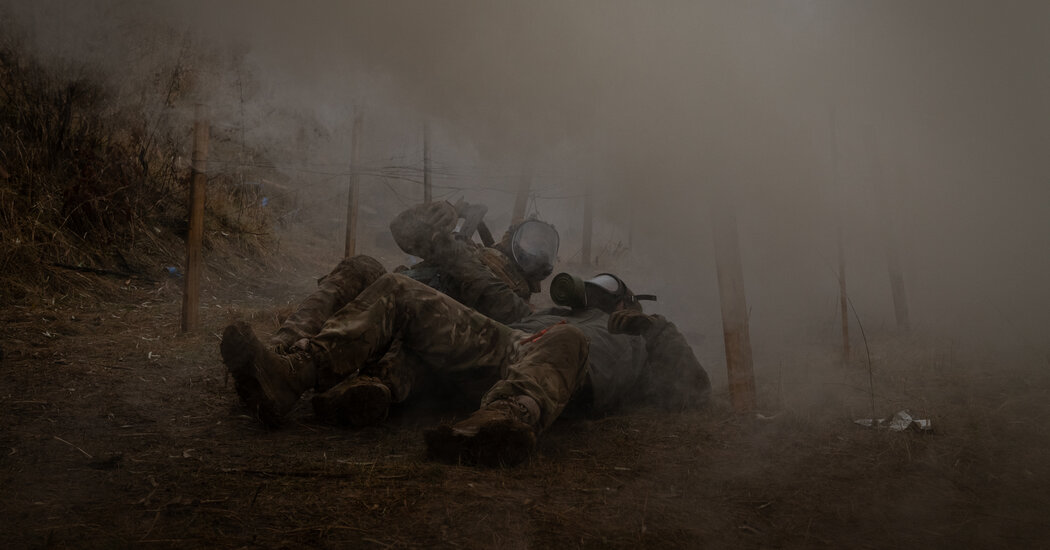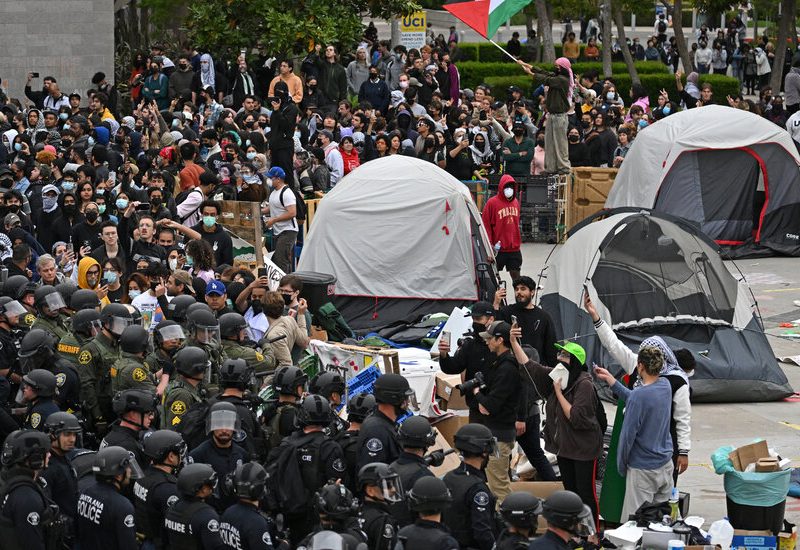The United States has accused Russia of using chemical weapons, including poison gas, “as a method of warfare” against Ukrainian forces, in violation of a global ban on the use of such weapons.
The State Department said in a statement on Wednesday that Russia had used chloropicrin, a “choking agent” widely used during World War I, as well as tear gas, against Ukrainian troops. The use of these gases in warfare is banned under the Chemical Weapons Convention, an arms control treaty ratified by more than 150 countries, including Russia.
“The use of such chemicals is not an isolated incident and is probably driven by Russian forces’ desire to dislodge Ukrainian forces from fortified positions and achieve tactical gains on the battlefield,” the State Department said. Russia this year has been slowly but steadily pushing through Ukrainian defenses in the east, capturing several towns and villages.
The State Department also said that the United States would impose sanctions on three state entities linked to Russia’s chemical and biological weapons programs and four companies that support them.
Anatoly Antonov, Russia’s ambassador to the United States, called the accusations that Russian forces had used chemical weapons “odious and unsubstantiated” in a post on the Telegram messaging app.
The Ukrainian authorities have reported about 1,400 cases of suspected chemical weapons use on the battlefield by Russia since the full-scale invasion began in February 2022, and that the rate has accelerated as Moscow presses ahead with attacks along the front line.
Maj. Anastasiia Bobobvnikova, a public affairs officer for the Ukrainian Army’s Support Forces, said that 371 cases of suspected chemical weapons use by Russian forces had been reported in March, about seven times the number from a year earlier.
The use of toxic agents often coincides with intense periods of fighting when Russia’s forces are battling to dislodge Ukraine’s from well-fortified positions, according to several combat medics and soldiers.
This winter, as the fight around the city of Avdiivka in eastern Ukraine was gathering pace but Russia was largely failing to make progress, medics at a frontline stabilization point said Russian forces had used chloropicrin, which severely irritates the nose, throat and lungs when inhaled.
Olena, 38, the station’s head nurse, who gave only her first name in accordance with military protocol, said the effects were horrific, with soldiers experiencing burning skin and vomiting and suffering other debilitating effects that make it impossible for them to fight.
Major Bobobvnikova said that most of the chemical substances used in the attacks had been identified as CS and CN, tear gases most commonly used by riot police officers to control crowds.
Although governments use tear gas for domestic law-enforcement purposes, it is considered a chemical weapon when used in warfare, according to the Organization for the Prohibition of Chemical Weapons, an implementing body of the Chemical Weapons Convention. Civilians can usually escape tear gas during protests, but soldiers in trenches have little choice but to flee under enemy fire or risk being suffocated.
Gyunduz Mamedov, Ukraine’s deputy prosecutor general, said last week that the Russian army had used tear gas against Ukrainian troops at least 900 times in the past six months, with more than 1,400 incidents reported since the start of the war.
Major Bobobvnikova said the chemicals were usually contained in grenades that Russian forces throw at Ukrainian positions, forcing soldiers out of their fortified positions. Ukrainian troops have a dearth of adequate protective equipment against chemical attacks, such as gas masks.
The Institute for the Study of War, a Washington-based think tank, reported in December that Russian forces fighting near the southern city of Kherson had said on social media that they were dropping K-51 aerosol grenades filled with CS gas from drones onto Ukrainian positions.
The State Department said that Russia’s disregard for its obligations under the Chemical Weapons Convention “comes from the same playbook” as its operations to poison Aleksei Navalny, the Russian opposition leader who died in a Russian prison in February, and Sergei Skripal, a former Russian spy who acted as a double agent for Britain, with Novichok nerve agents.
Foreign ministers assembled at a Group of 7 summit last month said in a statement that “any use of chemical, biological or nuclear weapons by Russia would be met with severe consequences.”
Marc Santora, Carlotta Gall and Oleksandr Chubko contributed reporting.



